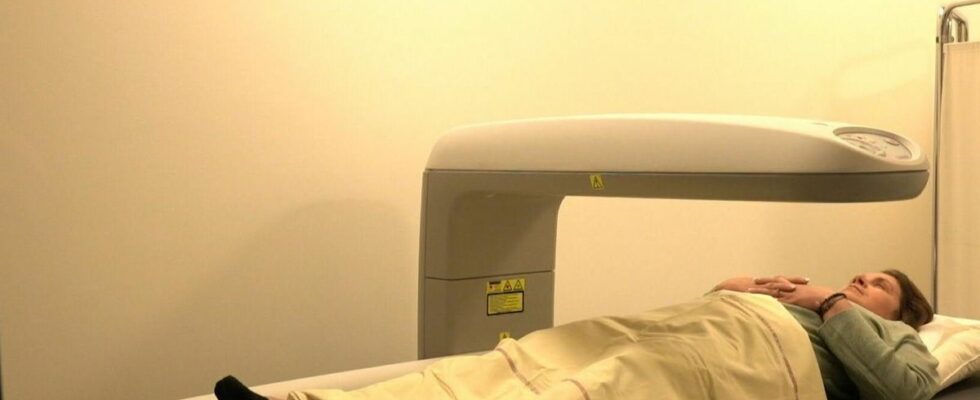Published on
updated on
Reading 2 min.
Faced with the taboo that still surrounds menopause today, a physiological phenomenon that affects all women, a unique center in Toulouse is fighting against the recurring lack of information.
“Joint pain is a very classic symptom of the onset of menopause. However, less than one in two women will spontaneously associate this symptom with menopause.“.
The example given by Professor Florence Trémollières is striking and illustrates one of the main missions of the institution that this gynecologist and endocrinologist has directed since 2011: to inform in order to help.
“I have patients who come from Strasbourg, Lille, Brest, because they can’t find a doctor who can answer their questions.“, sighs the director of the menopause center at the Toulouse University Hospital, the only one of its kind entirely dedicated to the issue in France.
In May, Emmanuel Macron had thought of her to lead a future parliamentary mission on menopause, a subject, he said in Elle magazine, of which “we realized that we knew him very, very badly“.
The parliamentary mission project is now “at a standstill” due to political turbulence, according to a source close to the matter, but the patients continue to need help.
Battery of questions
Around the age of 50, women stop having periods: their ovaries no longer produce hormones (estrogen and progesterone) and no longer release eggs at regular intervals.
It’s menopause, and dealing with it can be a challenge. The changing body, the feeling of slipping into old age, all of it still surrounded by a certain taboo.
Under tired neon lights, there are two of them waiting, this morning at 7:45 a.m., to be received by Christelle Moreau, the center’s nurse.
Armed with a battery of questions, the latter first seeks to identify patients to whom menopause poses an increased health risk.
Because although it is a normal development of the female body, the phenomenon nonetheless brings its share of problems, the most well-known of which are hot flashes.
More seriously, menopause increases the risk of pathologies such as cardiovascular diseases or osteoporosis, a reduction in bone density which increases their fragility.
Hence the nurse’s insistence on possible fractures suffered by her patients. In front of her, Julie Bonjour is a textbook case: she has broken her ankles three times in just five years.
“Do you smoke?“, continues Mrs. Moreau.”Yes“, replies the patient, 46 years old, director of studies at a high school in the suburbs of Toulouse, who confesses “about fifteen cigarettes a day“.
Hormone treatment
“It would be good to stop, because it affects the bones“, the nurse continues.
Since menopause is not a disease, there is no cure. But menopausal women can take hormone therapy to take over from the ovaries, especially when they stop working prematurely.
This is the case of Kelly Garcia, 43 today, but who was only 30 when chemotherapy caused “premature ovarian failure”.
“Women are programmed to receive hormones until they are 50, so if you reach menopause before 40, it becomes a disease, and like any disease, it must be treated.“, explains Ms. Trémollières, recalling that premature menopause can also increase the risks of heart attack and Alzheimer’s.
The advantage of the menopause center is that after a blood test by the nurse, patients only have to, in a well-rehearsed ballet, cross the corridor to reach the bone densitometry room, the barbaric name for the examination aimed at determining bone density.
A regular at the place, Kelly Garcia slips in and lies on her back while a robotic arm scans her lumbar spine (the bottom of the spinal column) and her femoral neck, which are very vulnerable to fractures.
“Other cities are not so lucky.“to have a menopause center. And, she worries, “Some patients find themselves completely helpless when faced with the symptoms they may have“.
